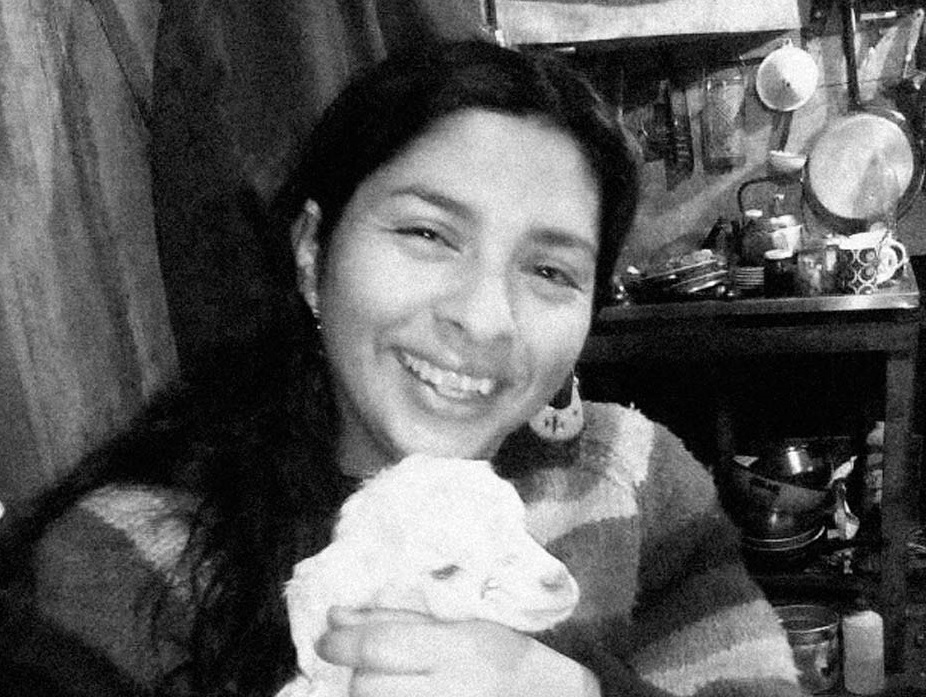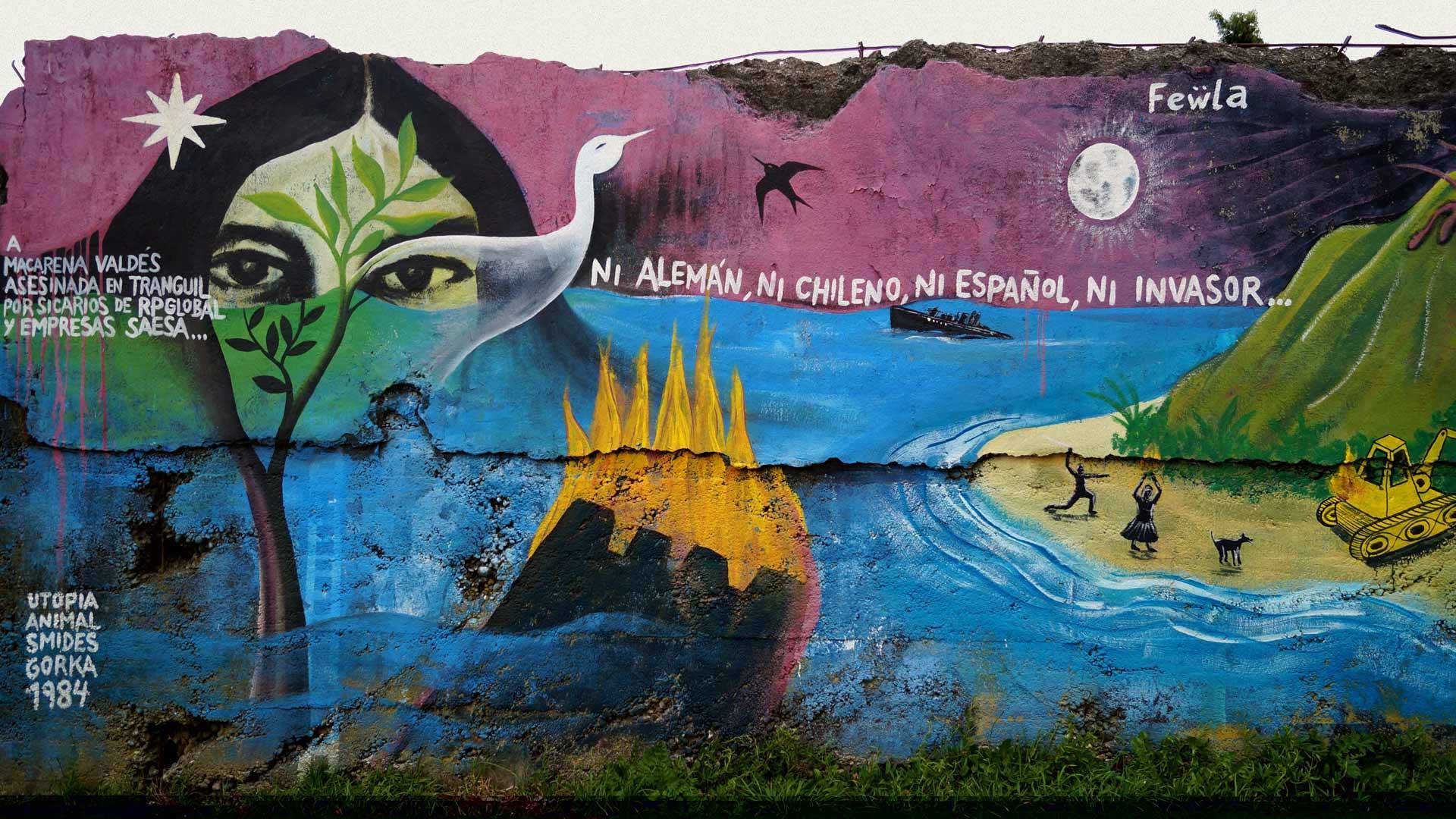The defender
Macarena Valdés was a well-regarded environmentalist leader of the Mapuche Nation. The city-born 32-year-old left Santiago in early adulthood to raise her family in Chile’s southern forests, where she pursued an interest in cultivating the land and preserving what was harvested, quickly becoming a leading figure in the community. She was also known for her work with survivors of gender based violence. Macarena worked for the protection of the area surrounding her home, which faced incursion by an electrical mega-project without effective community consultation or an environmental impact statement.
The conservationist received threats linked to her work as a human rights defender and both before and after her death, community members including her husband were threatened and/or beaten by carabineros, members of same the security forces infamously responsible for the cold war-era torture and disappearance of thousands of Chileans. Macarena was killed on 22 August 2018. Disturbingly, official investigations have consistently maintained that her death was suicide, despite all evidence to the contrary and neglecting the possibility that her death could have been anything but self-inflicted.
Parallels between Macarena’s death and the apparent suicide of Alejandro Castro in October 2018 have been noted with alarm by human rights defenders and organisations.
The murder
Less than three weeks after she had been arrested for participating in a roadblock to prevent multinational RP Global from stringing high-voltage power cables through her community, and one day before the project was due to begin, 32-year-old Macarena Valdés’ eldest son came home to find her hanging from the rafters in his bedroom. Her eighteen-month-old was nearby and the family suspects he may have witnessed her death. A meal was waiting on the stove and the baby’s diaper bag was packed for an appointment.
Macarena had no history of mental health issues and there was no indication that she had planned her own death. Although the family filed a petition requesting that homicide be pursued as one of the lines of investigation, the case was closed a few months later. The family offered to pay for a second, independent autopsy. Once they got the funds, the body was exhumed and reviewed by a panel of experts, who produced an 18-page report detailing evidence that Macarena was no longer alive when her body was suspended from the rope. The report is still in the hands of the public prosecutor’s office, and the case cannot move forward until the state medical examiner issues a second report.
Remembering Macarena
Macarena’s husband Ruben Collio, the werkén or spokesperson of Tranguil, described life with his wife at a memorial in her honor in August 2018.
«We came here from the city to create, to build, not to destroy … this place is beautiful, there are mountains and mountains of green, of native forest; the purest water on the planet is here, and there are spiritual places … my little boy used to say: come here, let me show you paradise. And they come to soil it with war, war that is not ours, because they were the ones who brought conflict. What we have done here is defend our rights and demand our dignity «
«Today, a few metres of cable is worth more than a person’s life, than a mother’s life, than the life of a life partner, of a beloved woman. My wife’s murder had several intended purposes; one was to weaken us … and they almost managed to do it. If she had not been so brave, I don’t know that we would have managed to stay on our feet, because the pain of losing her is gigantic. She was more than a werkén’s wife, she was a warrior «

